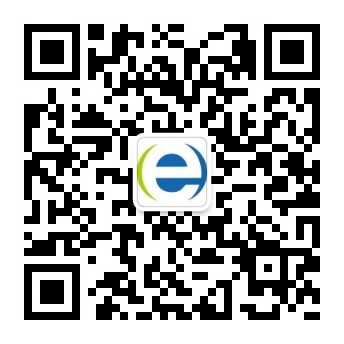学位英语语法(代词的用法)
摘要:学位英语考试要求学生掌握基本的英语语法知识,其中就包括掌握代词的用法。以下是为大家整理的相关资料。更多学位英语相关资讯,请关注希赛网英语频道。
三、 代词
(一) 知识概要
英语中代词可以分为人称代词、物主代词、反身代词、指示代词、疑问代词、不定代词。人称代词主要有主格和宾格之别。请看下表
人称 我 你 他 她 它 我们 你们 他们
主格 i you he she it we you they
宾格 me you him her it us you them
物主代词分形容词性物主代词和名词性物主代词两种。请看下表
人称 我的 你的 他的 她的 它的 我们的 你们的 他们的
形容词性 my your his her its ours your they
名词性 mine yours his hers its ours yours theirs
反身代词可见下表
人称 我 你 他 她 它 我们 你们 他们
反身代词 myself yourself himself herself itself ourselves yourself themselves
指示代词主要有this, that, these, those
疑问代词有:who, whom whose, what, which,
还有疑问副词when, how, where, why。
不定代词在初中课本中主要有some, any, many, much, each, neither, other, another, all, both, one, none, either…
(二) 正误辨析
[误]Tom's mother is taller than my.
[正]Tom's mother is taller than mine.
[析]形容词性物主代词可以作定语,也就是讲它可以作形容词,如:my book,而这句话的意思是:汤姆的妈妈比我的妈妈高。比较的对象是my mother,也就是mine。
[误]We have a lot of homework to do today. So we need two or three hours to finish them.
[正]We have a lot of homework to do today. So we need two or three hours to finish it.
[析]在应用代词时,要注意人称,格与数的一致性。这里it所代替的是不可数名词homework, 所以应用it。
[误]He and you should go to the library to return the books.
[正]You and he should go to the library to return the books.
[析]这主要是英语习惯上的用法。当两个以上的人称代词并列时其排列顺序一般为you, he, she, I,而复数时为we, you, they:如男女并列时,应先男后女,如:He and she …如果在表示不好意思,承担责任时,单数时用,I, he, she, you, 复数时用They, you, we, 如:Tom and I are good friends.
You, he and I must go to play the game for our team this afternoon.
We, you and they have been there before.
I, he and you have to pay for it.
[误]He or his brother is doing their homework.
[正]He or his brother is doing his homework.
[析]由either…or, neither…nor, or 连接两个主语时,如果两主语是单数时,用单数代词,如两主语是复数时,用复数代词,如:Either teachers or students want to do their best to help the old man.如是一单一复两名词时,一般将单数名词放在前,复数名词放在后,要用复数代词,如:The teacher or his students will clean their classroom together.
[误]His brother is taller than him.
[正]His brother is taller than he.
[析]than是连词,其后应视为省略句,than he is.所以要注意区分其主格与宾格的用法。
I like you as much as she.
[正]I like you as much as her.
[析]as…as 其后也应看作是省略句。应为as I like her.所以应用宾格。而第一句应译为我像她那样喜欢你。两句语法都是对的但含义不同。
[误]Myself did it yesterday.
[正]I myself did it yesterday.
[正]I did it myself yesterday.
[析]反身代词不可作主语,但可以用作主语的同位语。
[误]Take care of ourselves.
[正]Take care of yourselves .(yourself)
[析]祈始句的主语应看作第二人称you.
[误]Please bring your daughter with yourself.
[正]Please bring your daughter with you.
[析]反身代词不能作介词宾语,除非是由不及物动词与介词组成的动词短语,如: The old woman spoke to herself.
(三) 例题解析
1 These are ___books. Yours are over there.
A I B my C me D mine
2 —___ is she?
— She is a teacher.
A What B How C Who D Where
3___ is wrong with my watch. It has stopped___.
A Something, working B Something, to work
C Any thing, working D Anything, to work
4 Mary, help ___to the bananas, please.
A you B your C yourself D yourselves
5 —___ do you go to school every day?
— By bus.
A How B Why C When D Where
6 My skirt is___ popular than___.
A much, her B much, hers C more, her D more, hers
7 — Can you speak English?
— Yes, but only___.
A few B a few C little D a little
8 Mr. Smith is an old friend of___.
A I B me C my D mine
9 “ ___do you hear from your parents?”
“About once a month.”
A How long B How many
C How often D How much
10 Mr Green wouldn't say ___at the meeting.
A everything B nothing C anything D something
11 “Mum, Ann's coming tonight. Let's give her ___to eat.”
“Good idea!”
A anything nice B nice anything
C something nice D nice something
12 — When shall we meet, this evening or tomorrow evening?
— I don't mind. ___time is OK.
A Some B Neither C Either D Both
13 This is not her kite, but___.
A he's B him C he D his
14 Don't worry, Mum! ___ news is good news. I'm sure daddy will come back soon.
A No B Many C Those D Two
15 Mary has six apples. Her brother has three. She has ___apples than he.
A few B many C more D fewer
16 There isn't ___in today's newspaper.
A anything interesting
B something interesting
C nothing interesting
D interesting anything
17 September 10th is___ Day?
A Teacher B Teachers C Teacher's D Teachers'
18 — In England, people eat a lot of “takeaway” food. What about people in your country?
—___
A So we do. B We do so. C So do we. D We so do.
19 — Shall we go into that shop and have a look?
— Sorry. I won't. I have ___to do there.
A everything B anything C something D nothing
20— Oh, dear! Who broke the glass?
—___ Sam ___Bruce. It was the cat.
A Both, and B Not, but C Neither, nor D Either, or
21 The students are having a good time in the park. Some are drawing by the lake.___are climbing the hill.
A Others B Other C Another D The other
22 She is not a nurse. I'm not___.
A also B either C neither D too
23 I have two pencils. One is red,___ is blue.
A the other B another C others D the others
24 Sorry, I can't answer your question.
I know ___about the subject.
A little B a little C few D a few
25 My sister doesn't like skating___.
A So do I B So I don't
C Neither I don't D Neither do I
26 Yesterday morning there were only three boys in our room,___.
A you, he and I B I, you and he
C he, I and you D you, I and he
27 All the students are busy, so___of them will go to the concert.
A many B little C a few D few
28 The teacher gave ___student a new book.
A nobody B both C each D any
29 Black is neither a teacher ___a worker.
A or B either C nor D and
30 Our teacher gave us___on studying.
A many advices B some advices
C an advice D some advice
31 There are two foreign friends in the park. One ___is from Japan, is from America.
A other B others C the other D the others
32 Are there ___on the table?
A some cups B any cup C some cup D any cups
33 I've just bought five stamps. One is a German stamp, ___are American stamps.
A the other B the others C other D others
34 It was___ fine day that they went to the park.
A a so B so a C such a D a such
35 At that time the train was slow and noisy. So___people liked taking trains.
A little B a little C few D a few
36 We must help and understand each___.
A other B another C others D the other
37 ___is difficult to walk on the moon.
A Man B One C That D It
38 Jane has sent several letters, but ___of them have been answered.
A all B both C either D none
39 I don't know ___about the new headmaster.
A something B everything C nothing D anything
40___ of the students in the whole class could do this physics question.
A No B None C Not D Neither
1[答案]B.
[析]这里应用形容词性物主代词。
2[答案]A.
[析]这里的四个疑问词放在问句中全都成立,但其意义不同。What is she?应译为“她的工作是什么?”或“她是
做什么的?”而How is she?应译为“她身体如何?”而Who is she?应译为“她是谁?”其答语应为“她叫什么名字。”
而Where is she?应为“她在什么地方?”由答语决定了这道题的选择。
3[答案]A.
[析]因为是肯定句所以应用Something,其后由于表停止工作了,则stop后要用动名词。
4[答案]C.
[析]help oneself to something为“自己拿某物”。yourself为“你一个人”,而yourselves为“你们”。
5[答案]A.
[析]这题的答案是由问句决定的。
6[答案]D.
[析]因会讲某种语言的多少要用a little,把它看作不可数名词对待,此答语为:是的,但仅仅会讲一点。
7[答案]D.
[析]因句中有than,所以应选用比较级,而than后要选用名词性物主代词。
8[答案]D.
[析]这里应选名词性物主代词,这也是英语的一种习惯用法,而不要选择my。
9[答案]C.
[析]How often问的是某一动作发生的频率,即在单位时间内发生多少次。
10[答案]C.
[析]在否定句中应用anything
11[答案]C.
[析]肯定句中用something而不用anything,不定代词的修饰词应放其后而不要放在其前面。
12[答案]C.
[析]因如选用both则名词要用复数名词,也要用复数谓语动词,由于答语前有I don't mind 则决定不能选择neither.
13[答案]D.
[析]要注意“他的”名词性物主代词与形容词性物主代词是同形的。
14[答案]A.
[析]这是一条谚语,即没有消息就是好消息。
15[答案]C.
[析]由于是比较级,根据题意应选“多于”而不是“少于”。
16[答案]A.
[析]由于句子是否定句,应选择anything,而且不定代词的修饰语应放在其后面。
17[答案]D.
[析]教师节Teachers' Day,儿童节 Children's Day, 妇女节 Women's Day
18[答案]C.
[析]在答语中用简略方式表达上文的一个动作同样适用于另一个主语时,则要采用倒装句,但如果仅仅是对上句
的重复则不要倒装。
19[答案]D.
[析]这个答案的选择应由上下两句对话内容作出决定。
20[答案]C.
[析]neither…nor意为既不……也不……
21[答案]A.
[析]这里因为是代替复数名词,所以应用名词性的复数代名词。
22[答案]B.
[析]在否定句中该用either,而不用too和also.
23[答案]A.
[析]两者中的另一个应为特指。而且应为单数形式的代名词。而another是泛指单数代名词。others是泛指复数代
名词,而the others是特指复数代名词。
24[答案]A.
[析]中文讲我对此知道的不多,而英文中要用little。其含意为否定句。
25[答案]D.
[析]这是表达上面否定句中的动作,也同样不适合
于第二个人。所以要用neither,并要采用倒装句。
26[答案]A.
[析]这是若干人称代词并列时的顺序问题。请参看辨析中的例子。
27[答案]D.
[析]student为可数名词。
28[答案]C.
[析]both其后的名词应为复数,而any用于疑问句和否定句中只有each可以修饰单数可数名词。
29[答案]C.
[析]neither…nor为“既不……也不……”的固定搭配。
30[答案]D.
[析]advice为不可数名词。some可用于可数或不可数名词之前。
31[答案]C.
[析]因为是两者中的一个,所以另一个应用单数特指代词。
32[答案]D.
[析]此句是疑问句,应用any cups, 因提问时的be动词用的是are。
33[答案]B.
[析]此空应填入主语。又因其范围已定,所以应选特指的代名词。the other只能用作单数,而others是泛指复数
代名词,故只能选B。
34[答案]C.
[析]在单数可数名词前可以有两种表达法,即such+不定冠词+形容词+可数名词单数形式,如:such a good day,
或者用so加形容词+不定冠词+可数名词单数,如:so good a day.
35[答案]C.
[析]这是英文的表达法与中文不同之处。中文讲只有少数人喜欢坐火车,英文要选用“few”。
36[答案]A.
[析]each other意为“互相”,是习惯用语。
37[答案]D.
[析]这里的真正主语应为不定式to walk on the moon.而形式主语只能用it.
38[答案]D.
[析]several letters意为“若干信件”,应看作多于两者,则在A、D中作选择,仅D符合句意。
39[答案]D.
[析]否定句中应用anything.
40[答案]B.
延伸阅读
- 学位英语一年可以考几次?学位英语考试时间是什么时候?
- 2021年各省全年成人学位英语报名和考试时间汇总
- 2021年四川省内院校成人学位英语什么时候考试呢?
- 2021年云南省成人学位英语考试时间是什么时候?
- 2021年成人学士学位英语考试湖北医药学院知识点公告
- 安徽省2021年上半年各院校成人本科学位英语考试时间和费用汇总

学位英语微信公众号

学位英语备考资料免费领取
去领取
距离2021 学位英语考试
还有- 0
- 0
- 0








 专注在线职业教育25年
专注在线职业教育25年
 扫描二维码
扫描二维码
 扫描二维码
扫描二维码








